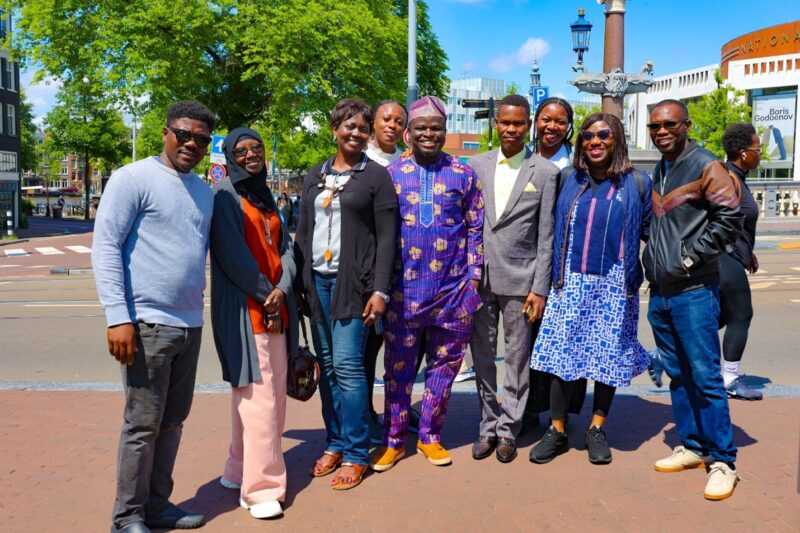Female Genital Mutilation is one of the prevalent Sexual and Gender-Based Violence (SGBV) recognised internationally as a violation of human rights, health and the integrity of girls and women. According to a 2021 data of the United Nations Population Fund (UNFPA), at least 200 million women and girls in 31 countries around the world are living with consequences of the dangerous practice of female genital mutilation (FGM).
WSCIJ initiated the Report Women! Programme in 2014 to focus on major issues of access and abuse as they affect girls and women. We have worked to increase the quality and quantum of reports about girls and women in Nigeria. One of our works was a documentary, Report Women: The untold stories on girls and women in Nigeria. It had a section focused on FGM. It revealed the role of culture in the practice of FGM.
Reporters under the Female Reporters Leadership Programme (FRLP), and its fellowship, are initiatives under the Report Women! have executed story projects that capture girls and women issues including FGM.
In the 2021 cohort of FRLP, focused on Sexual and Gender-Based Violence as supported by the Open Society for West Africa (OSIWA), Bassey Ikpang of Nigeria Television Authority (NTA) did a story on the Myths behind FGM in Nigeria. The story uncovered the myths behind FGM. It captured the views of some survivors of the practice as well those of some health and gender experts on the implications of the practice.
 The Violence Against Persons Prohibition (VAPP) Act which makes FGM an offence passed into law in the country in May 2015. Up to 25 states have since adopted the law. The news media can help spotlight how these states implement the law. “How state governors, legislature frustrate domestication of VAPP Act”, a story by Zainab Sanni of Agidibo FM, Ibadan, who is also in the 2021 FRLP Fellowship cohort, narrated the continued reluctance of the executive and legislative arm of some states in the country to adopt the VAPP Act hindered justice for survivors.
The Violence Against Persons Prohibition (VAPP) Act which makes FGM an offence passed into law in the country in May 2015. Up to 25 states have since adopted the law. The news media can help spotlight how these states implement the law. “How state governors, legislature frustrate domestication of VAPP Act”, a story by Zainab Sanni of Agidibo FM, Ibadan, who is also in the 2021 FRLP Fellowship cohort, narrated the continued reluctance of the executive and legislative arm of some states in the country to adopt the VAPP Act hindered justice for survivors.
In the 2019 cohort, Omobolanle Adesuyi, captured the devastating experience of girls and women who have undergone FGM in Oyo State, South-western Nigeria, with a call for collective action to tackle the root causes of gender inequality, a culture of silence, and stigma against victims of FGM with her story project, ‘The prevalence of Female Genital Mutilation in Oyo State’.
WSCIJ is in tune with the theme ‘Accelerating investment to end Female Genital Mutilation’, for this year’s International Day of Zero Tolerance for Female Genital Mutilation. We have collaborated and will continue to work with relevant stakeholders to empower and equip journalists and the media to investigate and report issues that affect girls and women and create awareness on the need to end FGM and other sexual and gender-based violence in the country.








